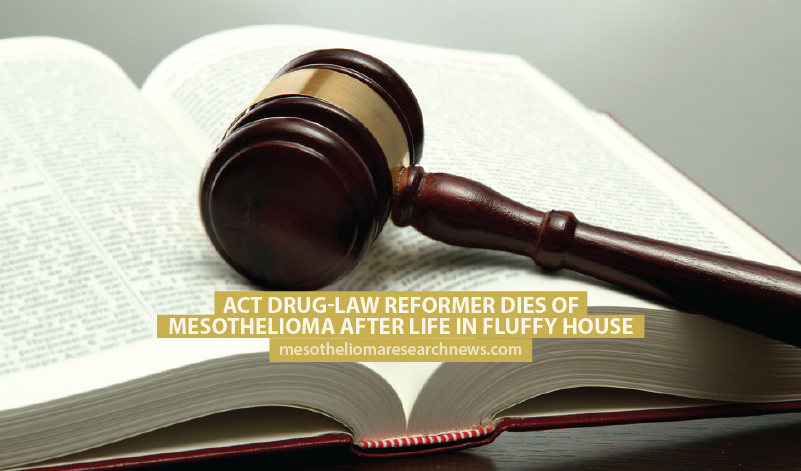
In the 1990s, a widespread asbestos contamination incident occurred in the suburbs of Canberra, Australia. It was dubbed Mr. Fluffy after two companies that imported and installed amphibole asbestos, a fluffy fibrous insulation product blown into in the roof spaces of homes.
The recent death of a respected drug-law reformer to mesothelioma has raised attention once again for the incident and the dangers of asbestos exposure.
Born in Yass in 1942, Brian McConnell grew up, married became and father and moved to Canberra with his wife and two young children in 1971. The family bought a Higgins Fluffy home then made the family larger with a third child.
Soon after moving into the new home, the father had insulation installed. Brian McConnell worked in public service in Canberra until his retirement at the age of 54.
While he raised his family with wife Marion, Brian McConnell lived unknowingly in an asbestos-contaminated house for 45 years. Asbestos was widely used in industries like construction for many years but its risks went unchecked.
In 1988, after concern rose, an audit was ordered and asbestos was found in home insulation throughout the Canberra suburbs. The process took years of investigations, auditing and bureaucracies until a massive cleanup was ordered. Later, traces of asbestos were still found in homes.
On the same day in October 2014 that the Australian government announced that it would buy and demolish all 1,022 Fluffy homes, Brian McConnell was diagnosed with mesothelioma. Brian McConnell believed the disease was related to his Higgins Fluffy home.
Marion McConnell explained that her husband had difficulties in dealing and accepting the mesothelioma diagnosis, as reported by The Canberra Times.
“He was still pretty distressed about that right to the end, he wanted to live, he had a lot to live for, he was still active, he loved the new home, he wanted to live and he tried everything as far as treatments,” she said. The family did not settle and believes the federal government should have taken responsibility for the case.
Though warnings about the dangers of asbestos were made, Brian McConnell spent time installing cabling, fixing leaks and other chores. After a year with mesothelioma, Brian McConnell had become more determined to fight for his life and he became president of the group Families and Friends for Drug Law Reform.
“They were the first family voices… that actually spoke out in this way,” said the vice-president of Families and Friends for Drug Law Reform and long-time friend Bill Bush about the McConnells. “They have had an enormous inspiration and influence internationally as well as in Australia.” Brian McConnell was also on the board of the Directions drug rehabilitation service, another cause he was passionate about since he lost a son due to overdose.
Brian McConnell died at age 72. He was married to Marion for 50 years and is survived by his wife, two children and four grandchildren.
Fiona Trevelyan, chief executive of the drug rehabilitation service, said Brian McConnell’s death is a great loss.
“Brian was a wonderful guy, really compassionate, very measured and very passionate about drug law reform but also services for people who have been impacted by drug and alcohol abuse,” Trevelyan said.
Learn more about mesothelioma here.
Mesothelioma Research News is strictly a news and information website about the disease. It does not provide medical advice, diagnosis or treatment. This content is not intended to be a substitute for professional medical advice, diagnosis, or treatment. Always seek the advice of your physician or other qualified health provider with any questions you may have regarding a medical condition. Never disregard professional medical advice or delay in seeking it because of something you have read on this website.

